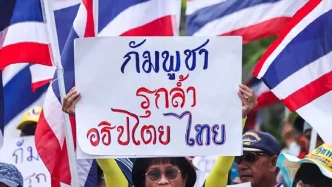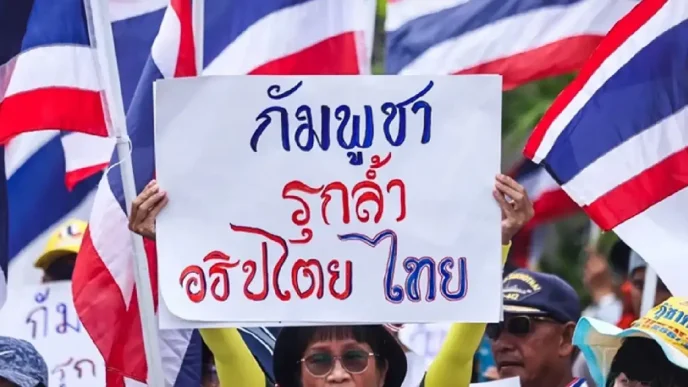Despite stringent laws aimed at curbing the sale of vaping products, Malaysia’s online marketplace for vapes and e-liquids remains alarmingly accessible, raising serious questions about enforcement and public health. Nearly a year after the Control of Smoking Products for Public Health Act (Act 852) came into effect, a quick search on internet engines reveals a thriving digital trade in these banned items, easily accessible to anyone with an internet connection, including minors.
A Persistent Digital Marketplace
In October 2024, Malaysia implemented the first phase of Act 852, a landmark legislation designed to regulate smoking products, including vapes and e-liquids. The law explicitly bans the sale of these items on online platforms, alongside other restrictions such as prohibiting sales in educational institutions, markets, and through vending machines. Yet, the reality on the ground—or rather, in the digital sphere—paints a starkly different picture. A cursory search using popular internet search engines uncovers numerous online stores and social media groups openly advertising vape devices and related products. On the first few pages of search results, at least eight individual online vape stores appear, offering a range of products complete with detailed descriptions, photos, and pricing.
While major e-commerce platforms have largely removed vape products from their listings when searched directly, a loophole persists. Entering specific brand names often reveals these items still available for purchase. More concerning is the presence of public social media groups that operate as bustling online marketplaces. These groups, accessible to anyone, feature media tabs filled with product images, prices, and descriptions, creating a virtual storefront that bypasses legal restrictions. Transactions are straightforward—potential buyers contact group administrators, provide their details, make payments via e-wallets or card transactions, and have the products delivered to their chosen address.
Weak Age Verification and Access by Minors
One of the most troubling aspects of this online trade is the lack of robust age verification mechanisms. Many of these websites and social media groups include a nominal age check on their landing pages, asking users to confirm if they are over 18. However, this process is easily circumvented by simply selecting Yes with no further verification required to browse or purchase products. Even at the point of sale, there is no mandatory age confirmation, allowing anyone, including underage individuals, to acquire vaping products with ease.
This accessibility poses significant risks, particularly to younger demographics. Anti-smoking activist NV Subbarow, a senior education officer at the Consumers Association of Penang (CAP), highlighted the severity of the issue. “There is an extreme lack of enforcement for vape sales online. There seems to be no serious efforts in tackling this” he said on August 13, 2025. Subbarow expressed deep concern over the absence of detailed age verification, noting that “anyone could just lie about being over 18.” He also pointed to reports of students obtaining these products through middlemen who purchase them online, further underscoring the ease of access.
Enforcement Challenges and Legislative Gaps
The persistence of online vape sales nearly a year after the enactment of Act 852 raises critical questions about enforcement. The legislation, rolled out in phases, aimed to create a comprehensive framework for controlling smoking products. The first phase, effective from October 1, 2024, targeted online sales among other avenues. Subsequent phases include a display ban at retail counters, initially planned for April 1, 2025, but revised to October 1, 2025, affecting approximately 51,000 retailers. A third phase will regulate packaging standards for smoking products. Despite these measures, the digital realm appears to be a significant blind spot for regulators.
Subbarow emphasized the futility of extensive regulations without proper enforcement. “We can have hundreds of pages on regulations, but if there is no enforcement, it will all be wasted” he stated. His call for a total ban on vapes, coupled with heavy penalties for violators, reflects a broader frustration among public health advocates over the government’s inability to curb this illicit trade. The lack of action not only undermines the intent of Act 852 but also jeopardizes public health objectives, particularly in preventing youth access to nicotine products.
Public Health Implications
The unchecked availability of vaping products online is more than a regulatory failure; it represents a public health crisis in the making. Vaping, often marketed as a safer alternative to traditional cigarettes, carries its own set of health risks, including potential respiratory issues and nicotine addiction. For adolescents, whose brains are still developing, exposure to nicotine can have long-term consequences on cognitive function and mental health. The ease with which these products can be obtained online directly contradicts Malaysia’s public health goals, as outlined in Act 852, which seeks to protect vulnerable populations from the harms of smoking and related products.
Beyond individual health risks, the normalization of vaping through accessible online platforms can undermine broader anti-smoking campaigns. Malaysia has made significant strides in reducing smoking rates over the years, with policies aimed at limiting access and increasing public awareness. However, the proliferation of vaping products, particularly among younger generations, threatens to reverse these gains. Public health experts argue that without stringent enforcement of online sales bans, the country risks creating a new generation of nicotine users, perpetuating a cycle of addiction and health issues.
Regional Context and Comparative Analysis
Malaysia’s struggle with online vape sales is not unique in the Southeast Asian region, where digital marketplaces often outpace regulatory frameworks. In neighboring Thailand, for instance, vaping remains entirely illegal, yet black market sales thrive online and through informal networks. Singapore, known for its strict enforcement of anti-smoking laws, has also faced challenges with illicit online sales, though its robust monitoring systems have had more success in curbing access compared to Malaysia. These regional comparisons highlight a common challenge: the borderless nature of the internet complicates national efforts to regulate products like vapes, which can be sourced and shipped from jurisdictions with laxer controls.
What sets Malaysia apart, however, is the scale of accessibility through public social media groups, which operate with apparent impunity. Unlike e-commerce platforms, which have made some efforts to comply with local laws by delisting vape products under direct searches, these social media marketplaces face little oversight. This gap in enforcement suggests a need for targeted strategies, such as collaborating with social media platforms to monitor and shut down groups violating national laws, alongside increased penalties for online vendors.
Looking Ahead: Solutions and Challenges
Addressing Malaysia’s online vape market requires a multi-pronged approach that combines stricter enforcement, technological solutions, and public education. First, authorities must prioritize digital enforcement, potentially establishing dedicated cyber units to monitor and shut down illegal online stores and social media groups. Partnerships with search engines and social media platforms could aid in identifying and removing offending content, while harsher penalties for vendors could serve as a deterrent.
Second, improving age verification processes is critical. Mandatory identity checks at the point of purchase, such as requiring government-issued ID verification, could significantly reduce access by minors. While such measures may face pushback over privacy concerns, they are essential for aligning online sales with the spirit of Act 852. Finally, public awareness campaigns targeting youth and parents can educate communities about the risks of vaping and the legal consequences of purchasing banned products.
Yet, these solutions are not without challenges. The anonymity of online transactions, coupled with the global nature of internet commerce, makes enforcement a complex endeavor. Vendors can easily relocate their digital storefronts to new platforms or jurisdictions, staying one step ahead of regulators. Moreover, resource constraints within Malaysia’s enforcement agencies may limit the scope of digital monitoring, necessitating international cooperation and funding to tackle cross-border sales.
As Malaysia grapples with these issues, the effectiveness of Act 852 hangs in the balance. The law represents a significant step forward in protecting public health, but its impact remains limited without addressing the digital loopholes that allow vape sales to flourish. Whether the government can adapt to the challenges of the online world will determine the success of its anti-smoking agenda and, ultimately, the health of its future generations.















